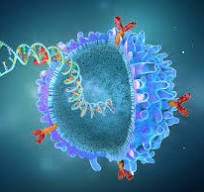Ameliyat olmuş mesane kanserinde yeni tedavi seçeneği olarak pembrolizumab
Ameliyat olmuş mesane kanserinde yeni tedavi seçeneği olarak pembrolizumab
Daha önce neoadjuvan kemoterapi almış ve sistektomi sonrası rezüdü tümör kalmış, pT2 ve üstü mesane kanserinde adjuvan nivolumab 1 yıl vermekle ölüm ve nüks oranın %30 azaltıldığı saptanmıştı.
Son ASCO Genitoüriner kongresinde Pemrolizumab ‘in mesane kanserinde etkinliğini deneyen AMBASSADOR çalışmasının sonuçları açıklandı.
Bu çalışmada neoadjuvan kemoterapi almış ve ameliyat sonrası pT2 ve üstü /lenf nodu pozitif ya da sisplatin alamayacak olan opere(ameliyat) olmuş pT3/lenf nodu pozitif hastalar adjuvan olarak 1 yıl pembrolizumab ve karşı kolda plasebo ile değerlendirilmiş.
Pembrolizumab ile hastalık nüks oranı ve ölüm oranın %31 daha az olduğu saptandı. Bu etkinlik PD-L1 ve daha önce neoadjuvan kemoterapi almaktan bağımsız saptandı.
Sağkalım sonuçları her iki grup için benzer fakat sağlıklı sonuçlar için daha uzun takip gerekiyor. Bu çalışmayla mesane kanserinde adjuvan immmünoterapi yüksek riskli gruplar için artık standart. Fakat ctDNA gibi tedavi etkinliğini öngörecek yeni metot ve markırlara ihtiyaç var.
Kaynak
ASCO GU2024

